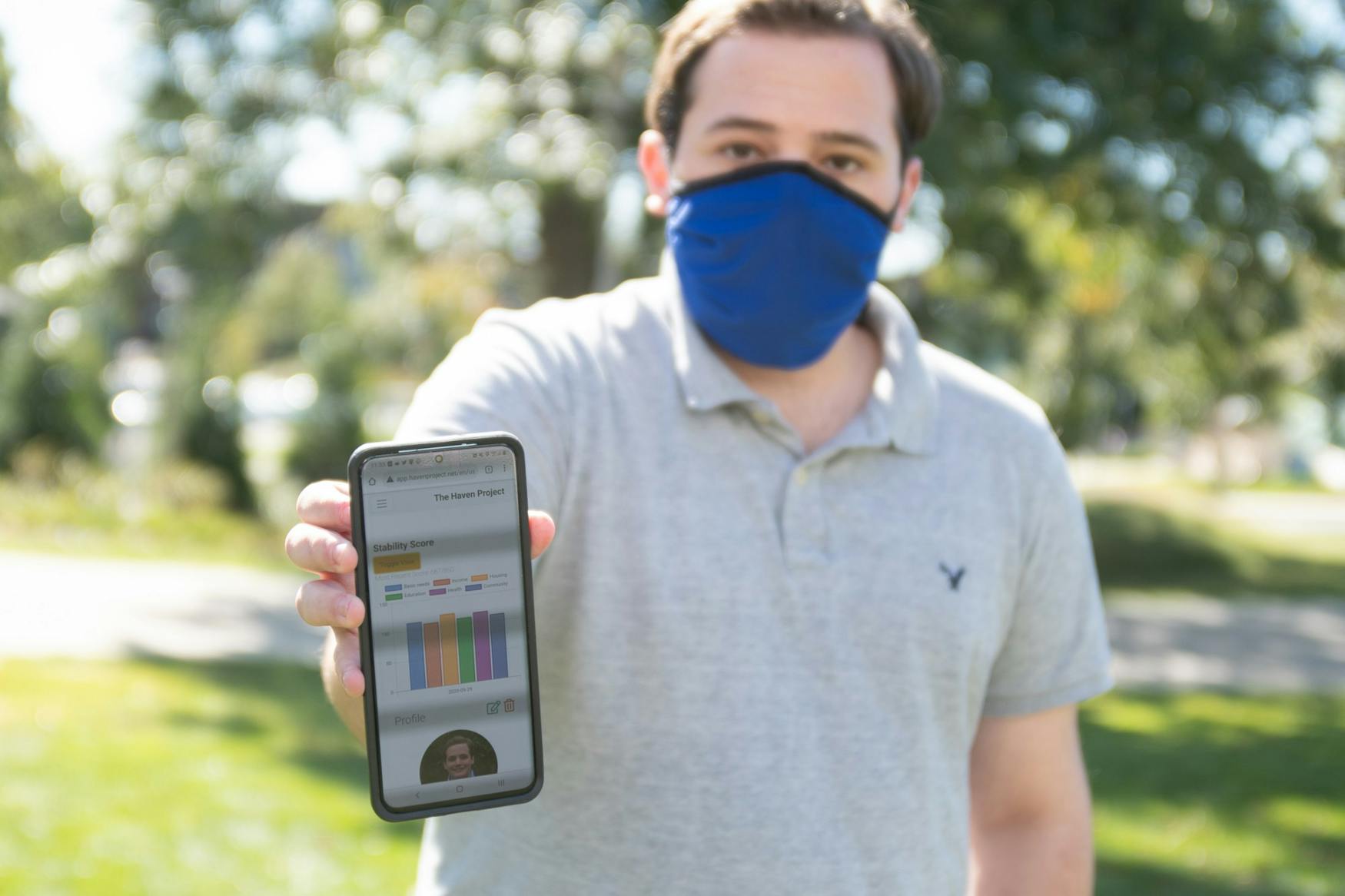Three University students create app to assist nonprofits negatively impacted by COVID-19
The app broadens communication channels between nonprofits and their clients.
This past summer, in the midst of the COVID-19 pandemic, three University students who participated in the Perlmutter Fellowship at the Brandeis International Business School worked together to create the Perlmutter App. They combined their interests of technology, business and social justice to create an app that would help organizations who were negatively affected by the outbreak.
Prof. Gene Miller (IBS) had the original idea for an app that helps nonprofits cope with hardships they faced as a result of the pandemic. Miller recruited three of her students — Daniel Khudyak ’17 MA ’20, Mitchell Dodell ’21 and Adam Fleishaker ’21 — to participate in the creation of the app with the funding from the Perlmutter Institute for Global Business Leadership. The Perlmutter Institute is meant to educate and prepare students to join global corporations.
Miller explained that the pandemic “hit so many smaller, tech constrained nonprofits” and these organizations had no way of communicating with their customers. Prior to the pandemic, nonprofits could reach out to people through large, in-person events, open services or door-to-door community outreach, none of which were possible with the spread of COVID-19. Many nonprofits with no customer relationship management platforms were stuck and did not know how to continue their work.
After observing this situation in multiple nonprofits, Miller realized that a simple but sophisticated app would be extremely helpful to struggling organizations. She then recruited the students, and they began creating the Perlmutter App. The website, put together by Fleishaker and Dodell, explains that the app allows organizations to “send events, information, and messages as admins to users via call, text, email, or in-app newsletter, whichever contact method(s) each constituent has access to or would want to use.”
The Perlmutter App is available to download and used by any organization, but was originally created for the Haven Project. At the start of the process, the team interviewed multiple nonprofits who were interested in the app and decided that the Haven Project seemed extremely eager and was the best fit for the app they had in mind. The Haven Project is a provider of services to homeless youth on the North Shore in Massachusetts. Much of their work includes community outreach, services and events for homeless young adults. When the pandemic began, the Haven Project struggled with finding ways to reach out to the homeless young adult populations and offer regular services to their constituents.
In an interview with the Perlmutter App’s project manager, Khudyak described the process and breakdown of creating the app. First, they had to understand the Haven Project — including their daily activities, services they offer and how they work with clients. Dodell and Fleishaker were both developers for the app but worked on different aspects of it. Khudyak’s role was project management, meaning he was the point of contact and completed oversight of the creation process. He said that his experience creating the Perlmutter App was an amazing bridge between his love for creativity and his interest in project management.
Miller described her experience with the app as “joyful work” for herself and everyone else involved. The students who created the app wanted to genuinely make a difference, and they succeeded.
In a video about the Perlmutter App, a leader of the Haven Project said, “Tools like this app that you guys created make us more efficient, make us more up-to-date and make us more accessible, and in the long run, that’s absolutely the work that we have to be doing.”
When speaking of future plans for the app, Miller explained that at the moment the Haven Project is the only organization using the app, but they plan to expand it to other nonprofits as well. The team in charge of the app is in the process of speaking to other nonprofit organizations and understanding how to customize the app to their specific needs. The app is not meant to be extremely exclusive or expensive; the goal is simply to help nonprofits that are struggling due to COVID-19 continue their meaningful work.
Correction: A previous version of this article did not name one of the co-creators of the app's website. The article has been changed to include Mitchell Dodell ’21 as a co-creator.



Please note All comments are eligible for publication in The Justice.